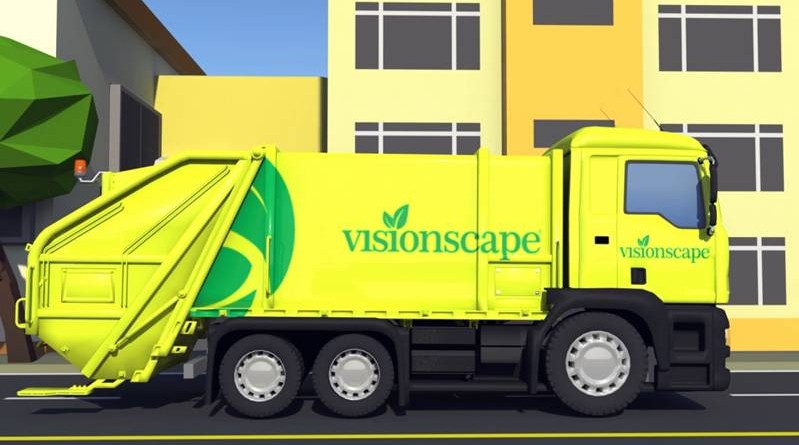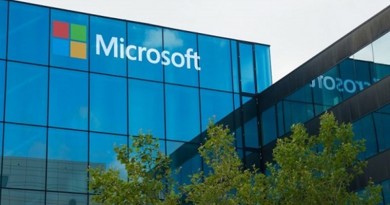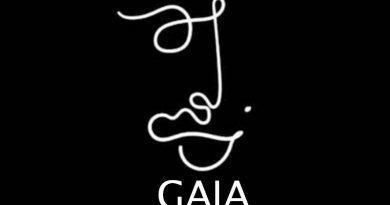Over 75% of Lagos waste is commercial – Visionscape CEO
We are a very small component of a larger initiative which is the Cleaner Lagos Initiative (CLI) and there are many facets to the CLI. But our core responsibility is to manage the waste which is being generated by the residents. So our mandate is to manage that waste stream to deliver a coherent and transparent remedy to the existing waste that is being generated in that sector.
What have you done to effectively manage the waste since you started operations?
What we have done is in two-folds: We have reached out to previous service providers known as PSP (Private Sector Participants) and did a reclassification of the existing service providers and renamed them Waste Collection Operators ((WCOs). So we work hand in hand with the operators to bring the waste stream to our infrastructural facilities. The project was about infrastructural development, it wasn’t just about collecting the waste because collecting the waste is only a small part of a whole waste line. Our mandate has always been to manage the actual waste from conception, from waste generation, straight to different waste disposals and the core processing.
We have heavily invested on infrastructure, Transfer Loading Stations (TLSs) and depots. They are officially owned by government but given to us under a 10-year concession agreement. Our plan is to upgrade these facilities to make them modern and more efficient for the next 35 to 40 years. But more importantly, what CLI seeks to do is to alleviate the WCOs’ turnaround time in collecting the waste. So the more infrastructure in place, the swifter and more efficient the waste evacuation; the more efficient it will be for haulage and disposal.
When you started operation last year, there were complaints from residents about heaps of refuse all over the place. Have far have you done in clearing the waste; and what is the thrust of the agreement you had with the PSP operators?
First of all, this is what we call a first cycle project and that means we are the first service providers outside the government body. With our infrastructure projects being fast-tracked, we have been able to alleviate some of the problems that have been there.
But when you talk about the heaps of refuse on the streets, we have done our study and analysis, the waste you see on the street, over 75 per cent of it is commercial waste. Visionscape ’s real mandate under the CLI project is to manage the flow and efficient process and final disposal on residential waste. You have to make that clear to your readers. What you see on the streets is predominantly commercial waste and not residential waste and that is where the confusion is.
How far has your partnership with the PSP gone in bringing about efficiency in the waste management system?
We all sat at a table. We all have the same ultimate goal – to ensure that Lagos State is given a coherent, transparent and clean waste management programme – whether it is delivered by myself or the WCOs, it doesn’t matter. Let me make this clear, I am just same as the WCOs except that I am slightly larger. I have a board of directors that is going to fund the activities, but ultimately I am a WCO interested in doing the same job as our partner WCOs to make the state clean.
One of the projects embarked upon by Visionscape is the Epe Landfill station described as the first of its kind in the whole of West Africa. What is its significance in the entire waste management system in Lagos?
When we arrived, Epe was just a dumpsite: there was no control and with the unfortunate fire there, the state took the choice to close it completely which I believe, as an environmentalist and garbologist, was the right decision. So our plan in Epe, which is part of the CLI project, is to build the first West Africa engineered landfill that will become an Eco Park. What I mean is the waste will no longer be indiscriminately dumped; there would be a methodology by which the waste is introduced into the landfill and we are going to deploy the right technology.
Again, we are going to have what is called gas capture. The emission gas would be managed and stored and can be used. We can use it for vehicles, we can generate power or we can sell it as a by-product.
What we are putting into the landfill is technology to alleviate the waste problem. We are introducing anaerobic digestion where organic waste be made into several products; it maybe power or energy generation and that would depend on how the quantity is and how clean is the organic waste.
We have finished the phase one which is putting in place a road infrastructure. We have built the road from the expressway into the landfill; we have built a control tower, built weigh bridges; we have built access roads into the waste management sites. The control tower which should not have taken us more than four months to build took us 10 months because of the way waste was indiscriminately disposed into the dumpsite. We have to dig deeper and wider to get the foundation.
What is your plan for the locals in Epe especially the scavengers using the landfill?
I don’t like the word, ‘scavenger’. These people are landfill miners or at best entrepreneurs. If you go to Epe and speak to existing landfill miners there, their ability to earn revenue has increased by almost a 100 per cent. We have put a simple process in place to allow these people to collect, to make things faster and quicker and safer. We are building a multipurpose recycling facility. When such facility is built, they would be embraced into the Visionscape family; they would become employees, they would become pensionable, they would have healthcare and they would earn a steady wage. So that is the plan for the landfill miners in Epe.
The problem in waste reform comes with resistance and the government has done its job. The government has said, “We are bringing CLI into the forefront” and this is not just about waste. There is water, there is air quality. So the CLI covers everything and I strongly believe that what CLI has done, they have made that project approachable for every Lagosian.
If anybody has any concern, they can reach us, they can come to us and we will explain what we are doing. We are taking a lot of people to Epe to show them what we are doing. We have nothing to hide. We want people to understand what we are doing because through transparency comes trust.
Visionscape in 2017 executed a Memorandum of Understanding for a Special Purpose Vehicle (SPV) with the issuance of bonds to finance the CLI. Can you give an insight considering the insinuations over the bonds issuance that they were being funded by taxpayers’ money?
A bond is a vehicle for raising fund. And I will say again, like I said on TV, this bond is on my shoulders, it is a company bond, it is not a bond funded by taxpayers. It is not a bond funded by the state government and it is not a bond funded by the Federal Government. It is just a mechanism for private companies to fund their investment for long term project.
Let me make this perfectly clear, the bond has nothing to do with taxpayers’ money, state budget or federal budget. This is a private way to raise capital and the reason we raised capital like this is to ensure we don’t exhaust our own cash flow. We, as a business, are responsible for our bond and we as a business will pay that bond.
What we have read in some mainstream and the social media is that the state is bearing the burden of that bond with N750m monthly?
What the state has done is that it has given us the permission to fund part of the CLI because we needed to seek permission. The only interest the state has in this bond is giving us permission to have source of funding like that, that is all the state has. This money has no billing on the state’s budget at all or taxpayers’ money. Do you think the state has N57 billion to give to me? The state has no liability, has no input on the payback; it has no input on how we spend that money.
What is the next plan for Visionscape Sanitation Solutions?
We are a global company, we are a global environmental utility company, we have a global image. We are talking to other states, we are talking to other African countries. Our presence in Europe allows us to have these international resources to prove a point. In UK, we have two highly developed recycling companies, very efficient and the technology we use there is second to none. The vision of Visionscape and the mandate from the board is to replicate what we are doing here in Lagos in other African countries and the larger market across the globe.
The message I just want to give to the readers is that we are here to stay. We won’t be away in two years time, we won’t be away in five years, the money has been invested.
Again, we are not here to take bread from people’s table and let me tell you, why? Under the CLI, the government had the foresight to split residential waste and commercial waste into two different areas. Now a lot of people don’t understand this. In reality, the residential waste collection, commercially is less than the commercial collection.
DAILYTRUST




